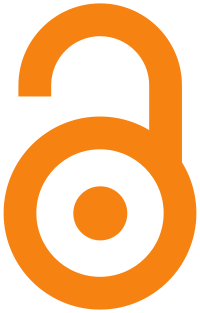According to
this New York Times article, college students spend between $700 and $1000 per year on textbooks. Yikes! I was an English major in college, so I was lucky to be able to find at the library many of the works we studied. But for those gen ed courses, it killed me to have to spend as much as $50 for a textbook at the bookstore (I know, it seems like nothing now…), especially since I knew I wouldn’t want to keep the book and would be lucky if I could get a third of its value back by selling it back to the bookstore afterward.
At the beginning of each semester, students swarm to the Research Assistance desk for help finding copies of their textbooks in the library. Sometimes they luck out, often with a slightly older edition, but we don’t generally purchase textbooks for our collection because a new edition comes out each year, and, well, they’re expensive. Given the choice between spending $200 on a textbook that might be used by one class, for one semester, and putting that money towards, say, an online resource that would be used by the entire campus, you can see why we usually don’t choose the textbook. (We do always ask faculty to consider putting copies of their textbooks on reserve, though!
Here’s our full policy on textbooks.)
The textbook publishing industry thrives on producing a new edition every year, and encouraging professors to adopt that new edition for classroom use instead of the older edition that’s often nearly identical. Until very recently, publishers reaped huge profits by bundling what are called “ancillary materials” with textbooks — you know, the CDs, the study guides, the stuff you often don’t use. They packaged that stuff with the textbooks in order to justify charging a much higher price than the book alone would cost. However, in July 2010, a bill introduced to the Senate in 2007, Senator Dick Durbin’s
College Textbook Affordability Act, finally went into effect. Among other things, it requires publishers to offer for sale
just the textbook, as well as the “bundled” version with all the other stuff included. If you don’t see a non-bundled version of a textbook for sale at the bookstore, talk to your professor! After all, even though the publishers are now required to offer them for sale, you can bet they’re still marketing the bundled versions to faculty.
You can also check out sites that allow you to rent textbooks by the semester or shorter periods of time — they’re kind of like Netflix for textbooks. That NYT article linked above will point you towards some of these sites. I haven’t had any personal experience using them, so I can’t vouch for them, but I hear good things.
There are also growing collections of free online textbooks — take a look at
this list of provider sites. Our own mathematics professor David Massey has even written a
free online calculus textbook!
Interested in getting involved in the movement for affordable textbooks?
Try starting here.
 Open Access Week, a global event now entering its fifth year, is an opportunity for the academic and research community to continue to learn about the potential benefits of Open Access, to share what they’ve learned with colleagues, and to inspire wider participation in helping to make Open Access a new norm in scholarship and research. Open access to information – the free, immediate, online access to the results of scholarly research, and the right to use and re-use those results as you need – has the power to transform the way research and scientific inquiry are conducted. It has direct and widespread implications for academia, medicine, science, industry, and for society as a whole.
During the week of October 24-30, the Northeastern University Libraries will host a series of events to celebrate Open Access. The events will cover a range of topics:
Open Access Week, a global event now entering its fifth year, is an opportunity for the academic and research community to continue to learn about the potential benefits of Open Access, to share what they’ve learned with colleagues, and to inspire wider participation in helping to make Open Access a new norm in scholarship and research. Open access to information – the free, immediate, online access to the results of scholarly research, and the right to use and re-use those results as you need – has the power to transform the way research and scientific inquiry are conducted. It has direct and widespread implications for academia, medicine, science, industry, and for society as a whole.
During the week of October 24-30, the Northeastern University Libraries will host a series of events to celebrate Open Access. The events will cover a range of topics: